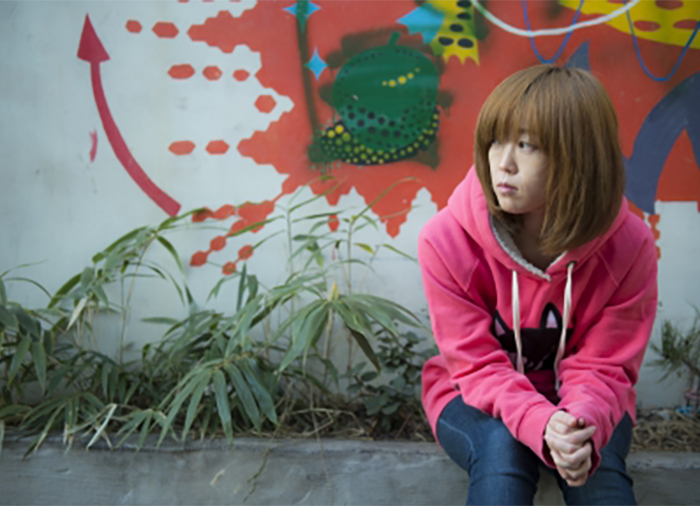View this article in another language
- 한국어
- English
- 日本語
- 中文
- العربية
- Español
- Français
- Deutsch
- Pусский
- Tiếng Việt
- Indonesian

I once had to call up Hwang Jungeun about doing a book reading. I was on my way back home after finishing a part-time job, so I was distracted during the call. In the middle of my spiel, she interrupted me, “I’m surprised you’re being so formal.” Was she right? Was I being too formal? Still swaddled in the exaggerated politeness demanded by the part-time job, I was stiff. When had I stopped behaving naturally? Or was this more natural for me? It felt as though I’d called her with a mask on, only to have my face exposed.
I think back to that day. Naturalness dawdles around unnaturalness before finally disappearing behind it, and only then do I think of the triumph of unnaturalness. I think of those moments when the masked and unmasked, insincere and sincere, and fake and real become inadvertently muddled. It occurs to me that our lives are stuck there for the most part. Matters become complicated at this point in my train of thought, because questioning the boundary between naturalness and unnaturalness begins with being wary of viewing them within a framework of simple dichotomy. Is this world so straightforward that we can easily distinguish between what is natural and what isn’t? I find Hwang scary sometimes because she obstinately takes on this attitude. Readers are placed before her writing with their bare faces only to have even the traces of their masks exposed by her.
Hwang’s latest short story, “Bokgyeong,” is about a saleswoman at a furniture store in a mall. Accused of ripping a sofa on display, the woman exposes the unfairness of being coerced into compliance. When she talks about the many unfair compromises people are forced to make for things to reach a stage everyone takes for granted, the reader is compelled to think about the appropriateness of distinguishing between the masked and unmasked, insincere and sincere, the fake and the real. At this point in the story, the writer’s eyes are strangely focused on the back of the woman’s head. The woman has a flat head from the time she was left lying on her back in her infancy because her mother was busy supporting the family all by herself. The woman’s flat head is a mark of her personal history of being born in straitened circumstances that she has to carry for life. Perhaps the writer can keep herself from lowering her guard against simple dichotomy when she gazes at the back of the woman’s head.
A person who has gazed at the back of someone’s head and discovered a unique expression and history in it can’t help but grow up hearing a distinctive voice. I feel that scenes like the one in “The Laughing Man” in which the narrator discovers that the wall beneath the wallpaper isn’t flat, or in The Barbaric Miss Alice, in which the narrator says he “lost sight of the backs” of Alicia, Alicia’s brother, and Gomi as they disappear into the darkness, laughing despite being hurt by the world, were written by such a person. I conjure up the forlorn eyes and quiet look of the writer who strives to be at a place where she can gaze at the backs of people’s heads, their hidden sides, and their shadows. There’s nothing plaintive or sad about it. You’re simply comforted by the fact that she has “ended up knowing” even the sight of your back and by her politeness in holding back from talking recklessly about the hardships this heartless world has thrown at you.
The place behind is another way of saying the spot left behind. Somehow I feel that Hwang is at that spot, and while I don’t want to make her feel compelled to remain there, there are times when her insights into the backs of people’s heads inspire me to think about life again.
*Article from the List Magazine published by the Literature Translation Institute of Korea